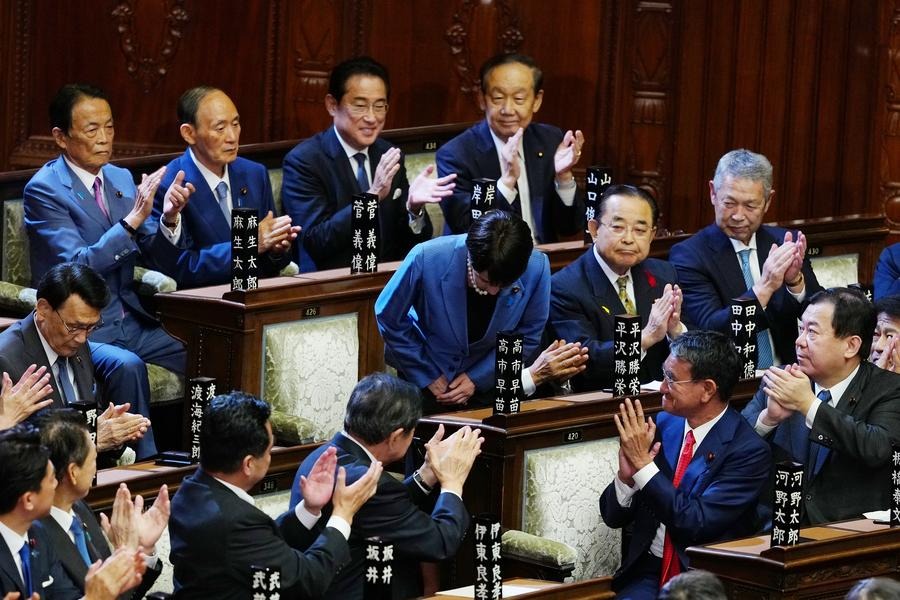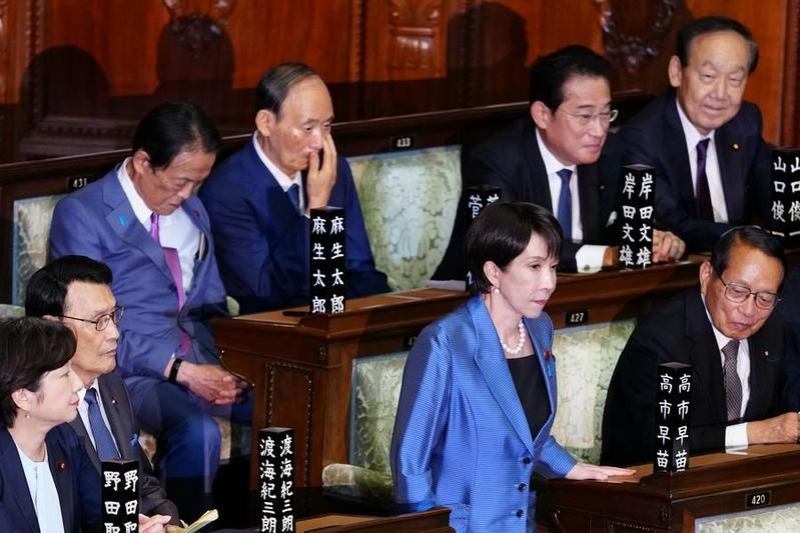Clean team


China-EU collaboration to advance their green energy transitions can help spur concerted global efforts to attain zero emissions
Ahead of the China-EU Summit, the partnership between China and the European Union centered on the green energy transition has emerged as a focal point. This not only signifies the potential of the collaboration between the two, but also holds the potential to catalyze renewed momentum for climate actions at the ongoing 28th session of the Conference of the Parties to the United Nations Framework Convention on Climate Change (COP28) in Dubai.
Facing climate change, China and the EU are collaboratively establishing a green partnership, advocating a zero-carbon development model. This entails deepening cooperation across three dimensions: trade and investment in the new energy industry, the development of new energy and power systems, and collaborative efforts to advance more effective global climate governance.
First, sharing common interests and goals in the transition to clean energy, the two sides should concentrate their cooperation on facilitating their mutual transition. This is essential for the successful implementation of the Paris Agreement and the provision of clean, sustainable, and affordable energy to their citizens. China and the EU play pivotal roles as significant investors in global renewable energy. China's clean energy investment witnessed a substantial increase to $546 billion, nearly 50 percent of the total global clean energy investment, and ranked No 1 in the world in 2022. The EU follows in second place with an investment of $180 billion. Businesses in China and the EU, both upstream and downstream, should leverage their complementary advantages in green technology, funding and investment models. Joint investments in constructing production bases for clean energy equipment and essential raw material mining and smelting bases in China, the EU and other global regions are recommended. This will contribute to fortifying the resilience and transparency of cross-border supply chains, facilitating the joint establishment of an open industry chain that aligns with the requirements of the global energy transformation.
Second, China and the EU should foster collaboration and innovation in critical core technologies under the principle of mutual complementarity, mutual benefit and the pursuit of win-win results. In the context of the Paris Agreement, China and the EU have similar needs for the development of clean energy and green industries and technologies, which creates an expansive domain for collaborative efforts in green trade cooperation. Upholding the Paris Agreement constitutes a solid foundation for future cooperation between China and the EU. The government departments, enterprises, scientific research institutions and industrial structures in the field of energy and power in China and the EU are natural partners who can learn from each other and make progress hand in hand. China and the EU have considerable potential for cooperation in building new power systems, clean energy development, integrated development of energy sources, networks, storage, digitization of their energy systems, and the construction of their respective green power markets.
Third, China and the EU have executed and will continue to execute the road map for the China-EU Green Partnership. The EU's energy crisis has resulted in increased demand for green goods from China. There is also important complementary space for the green energy industry between China and the EU. The EU leads the world in hydrogen energy, offshore wind energy, etc, but its promotion of lithium batteries has been poorly developed for many years. China is impressive in fuel cells, lithium batteries, onshore wind energy, etc, and has become an important source of photovoltaic panels, power batteries, and rare-earth permanent magnet supplies for the EU.Considering the advancement of clean energy technology in China and the EU, along with their distinct industry strengths, cooperation in the realm of clean energy technology exhibits significant potential. China and the EU possess the capacity to jointly establish the foundations of a global green supply chain.
It is also vital the two sides collaborate synergistically to advance global climate governance, exerting concerted efforts to realize the effective implementation of the Paris Agreement and the specific measures outlined therein. There exists a longstanding disjunction between the aspirational aims and practical implementation of the outcomes of global climate negotiations. The EU-China Green Partnership endeavors to redress this disparity by injecting fresh momentum in the global energy transition and climate governance agenda. Their partnership gives the EU and China greater autonomy and a stronger voice in global climate governance. The EU sees China as a crucial partner for multilateral climate and energy cooperation and a support for it to maintain its position in global climate and energy governance. The global energy transition has strengthened the interdependence of the clean energy trade between China and the EU.
The EU requires China's support in international platforms such as COP28 to achieve its climate and energy goals. Similarly, China requires the EU's support in sharing responsibilities and remodeling international rules. Notably, China and the EU jointly spearheaded the launch of the Common Taxonomy of Sustainable Finance at COP26.COP28 presents an excellent opportunity for both parties to collaborate and reach consensus on crucial issues such as intensified climate actions, the decarbonization of energy systems, climate adaptation, climate finance, carbon pricing, and the operation of loss and damage funds.
In furtherance of China's proposition to "triple renewable energy production capacity by 2030" during COP28, EU Commissioner for Climate Action Wopke Hoekstra engaged in discussions with China's Special Envoy on Climate Change Xie Zhenhua in Beijing on Nov 16.Additionally, the 24th China-EU Summit was convened on Dec 7.
China faces external pressures attributable to the foreseeable ambitions of the United States at COP28. In response, China is actively pursuing a transitional partnership with the EU, one specifically focused on green energy initiatives.
There is no doubt that the climate crisis is not something that can be solved by a single country alone. Furthermore, China and the EU have cooperated in clean energy for more than 30 years, and the demand for climate and energy cooperation between the two sides has continued to rise. In the context of the global climate crisis and energy crisis, their complementary advantages are apparent. Establishing a sustainable EU-China partnership to realize their green energy transitions is conducive to advancing the global clean energy transition. Leading the implementation of the Paris Agreement and pursuing the corresponding global climate governance goals will help strengthen global energy governance, promote a just transition, and spur technological innovation.
Yu Hongyuan is a professor and director of the Institute for Public Policy and Innovation at the Shanghai Institutes for International Studies. Ren Kanghua is a research assistant at the Shanghai Institutes for International Studies. The authors contributed this article to China Watch, a think tank powered by China Daily.
The views do not necessarily reflect those of China Daily.
Contact the editor at editor@chinawatch.cn


































